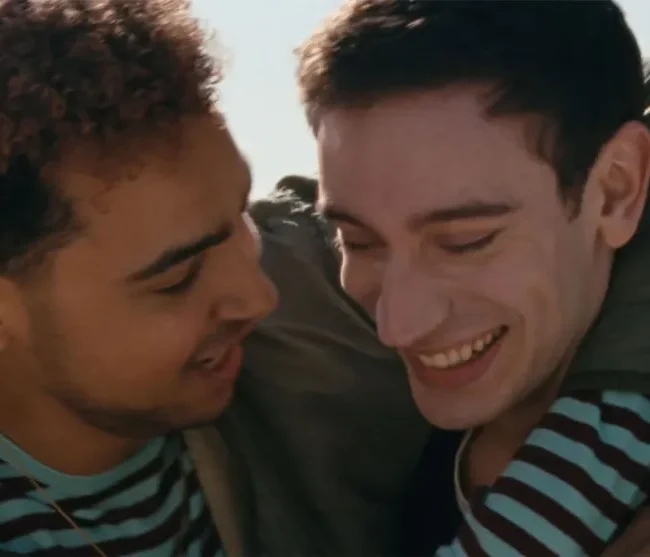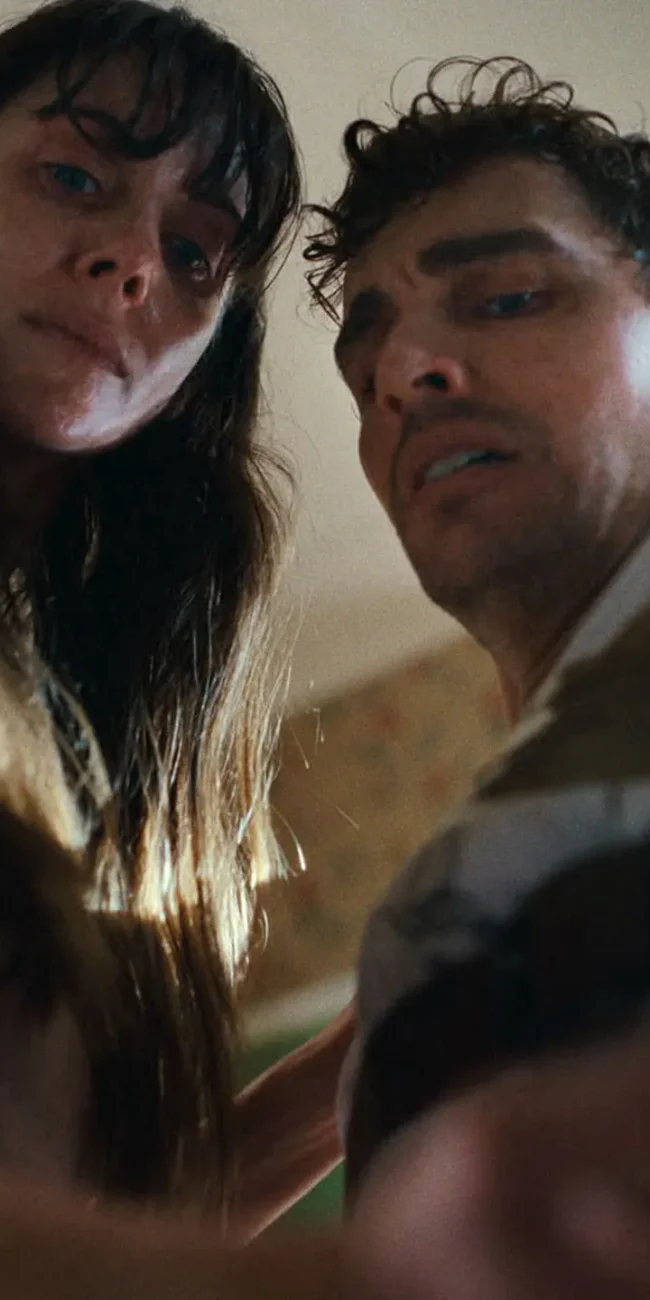A Conversation with Rachel Lears (KNOCK DOWN THE HOUSE)
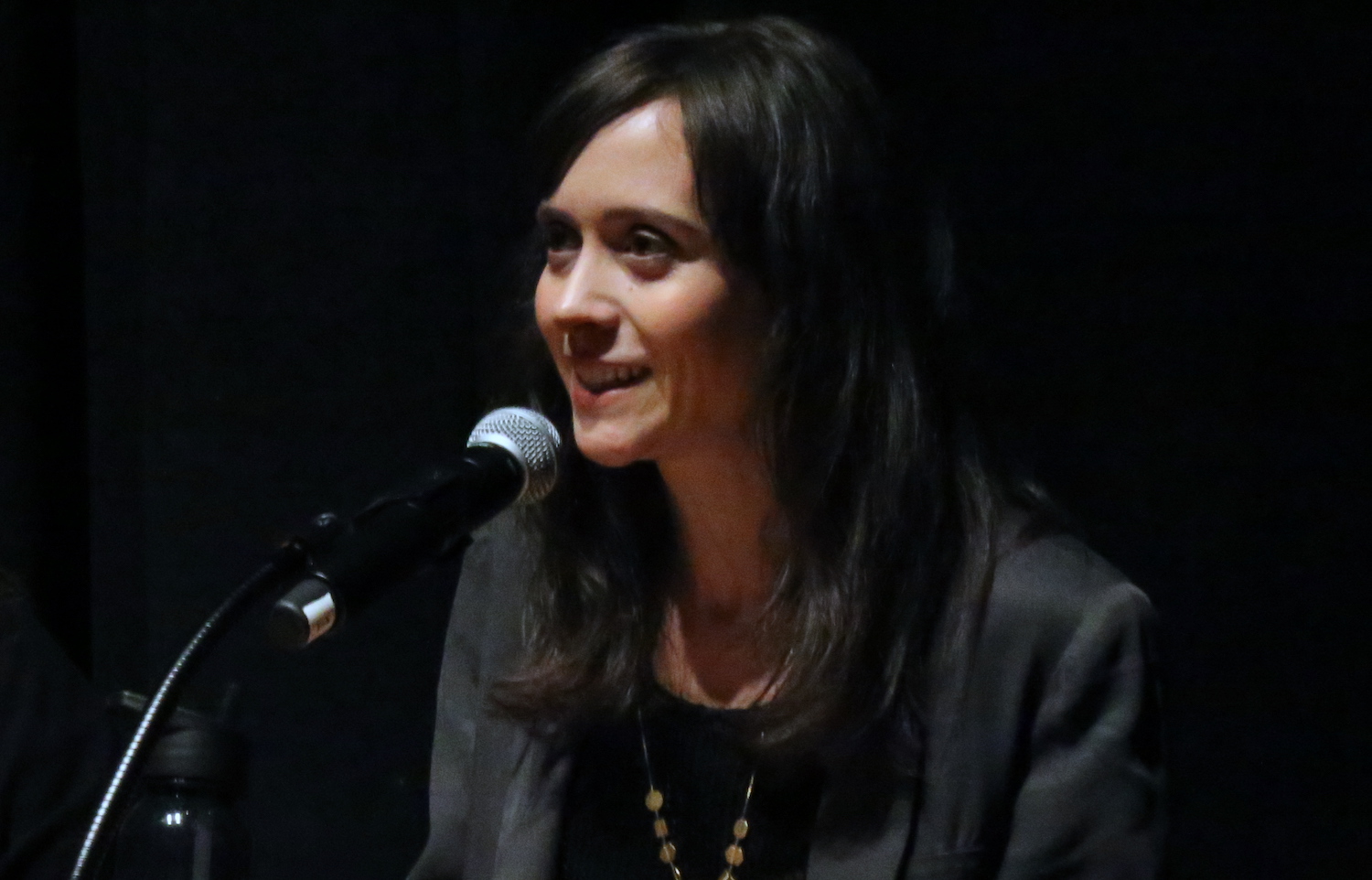
I spoke with director Rachel Lears on Tuesday, April 30, 2019, by phone to discuss her powerful new political documentary, Knock Down the House (which I reviewed at Sundance). The movie follows four political-novice women who ran for congressional office in 2018 – Cori Bush, Alexandria Ocasio-Cortez (also known now as AOC), Paula Jean Swearengin, and Amy Vilela – only one of whom won their race (guess who?), but all of whom brought energy and passion to their insurgency campaigns. Beautifully told and inspiring in its call for all of us to take back our political system, the documentary opens on Netflix on Wednesday, May 1. Everyone should see it. What follows is a condensed digest of our conversation, edited for length and clarity.
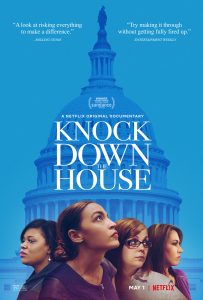 Hammer to Nail: How did you pick your four subjects? I imagine that there was a potentially lengthy casting process, or perhaps not.
Hammer to Nail: How did you pick your four subjects? I imagine that there was a potentially lengthy casting process, or perhaps not.
Rachel Lears: There was, actually. We didn’t follow 30 candidates and then cut it down in post. We definitely went through a casting process in the early stages of production. The project started with the idea of regular working people transforming themselves into viable candidates and running on this unified slate. I had heard about the organizations Brand New Congress and Justice Democrats, that were recruiting folks for this, and started out convincing the organizers there to get on board with the documentary project, and to introduce me to candidates which they were in the process of finding through crowdsource nominations.
Fairly early on in the process, in the spring of 2017, I met Alexandria and Cori and was very interested in working with both of them. But Alexandria was in New York, so I was able to do … We didn’t have any external funding at the time. We were fitting in the project between freelance gigs while we developed it, and the fact that she was based in New York meant that we could capture more early stages of her process and her story.
HtN: Because you’re based in New York, as well.
RL: Yes, I am based in New York, as well. We were in touch with Cori and pretty soon met Paula Jean and Amy, as well. I talked to probably a couple dozen candidates on the phone, met a bunch of them in person through the course of several months, or most of the year 2017, actually. The project really came together around these four. Early in the year, it became clear that the historic wave of women running in 2018 was going to be one of the big stories of the year, so it felt like a natural fit to focus on women. But within that, of course, we wanted a level of different kinds of diversity of backgrounds as well as geography and issue areas.
More important than that, as a filmmaker, we knew going into this that there was a high probability that several, if not all, of the candidates would lose their elections. They were all considered long-shot races, and we really wanted to make sure that the people we were working with would be charismatic and interesting to watch, no matter what happened with the elections. We also made sure that they had very intense, high-stakes personal reasons for running for office.
Those personal stories and who they are as people, all of that was built into the casting process so that we would be able to really explore the nature of power in the country. I mean, these were all going to be long-shot races: individuals from outside the political system challenging the political establishment, challenging political machines. We knew that in discussing the hardship of those races, it would be an opportunity to explore how power works in this country and this kind of parallel between the personal empowerment that you have to go through as a candidate to get through this process, and the way communities can build power to challenge the political system.
HtN: I think your film does a marvelous job exploring that. Did you get a sense of how Justice Democrats and Brand New Congress vet the people that they recruit to run?
RL: In a lot of ways, they were looking for a lot of the same things I was looking for. I mean, when we started out, they didn’t have candidates yet, so I just liked the idea that they had of finding people who for the most part come from working-class backgrounds, certainly regular ordinary people, but with something extraordinary about them, whether it’s their record of service in the community or the facility they have to articulate policy. They used this phrase “extraordinary ordinary people,” and I thought that was a really great gloss for what we’re always looking for as documentary filmmakers in a lot of ways: you know, people who are going to be relatable but also have something very strong and extraordinary about them.
They were looking for people who would get on board with the idea of running grassroots campaigns that accepted no corporate PAC or lobbyist funds. That was sort of the first piece. They also had a broad platform of policy proposals that everyone was going to be running together on. They were looking for those things and they wanted people who really came from the communities that they sought to represent. The overall project was to get money out of Congress, big money out of Congress, and increase representation. It was very much about the connection between money and politics and representation in politics. And that interested me as well.
HtN: And that comes across in the film. I mean, you did a wonderful job casting, and how fortunate, just for the trajectory of the narrative, that at least one of them won.
RL: Yeah, absolutely.
HtN: It helps soften the bitterness, perhaps, of the loss of the others. Was there anyone that you considered profiling in the film, but didn’t, who also won their race?
RL: Actually, there weren’t any that we considered who won their general-election races. There were a few who also won primaries. The other Justice Democrats that did win their general-election races that are now in Congress with Alexandria, I was very interested in their races and following along, but they had all held political office before. I was more interested in the candidates that were recruited for this and that did not hold political office before.
HtN: That makes sense, yes. And in terms of the ones who had held previous office and then won again in 2018, Ilhan Omar just had her own documentary.
RL: She had her own documentary, yes.
HtN: And it’s a very good documentary, too.
RL: Absolutely.
HtN: You’re also listed as the DP [Director of Photography] in the credits. I assume you might have had others on B cameras or second units, but how was it juggling both roles? Perhaps that’s how you’ve always worked?
RL: It’s how I’ve always worked, yes. I’ve really been doing a lot of vérité shooting for about 15 years. We did have two additional cinematographers, though. The primaries in Nevada and New York were two weeks apart, so there were a lot of overlapping events. Or at least, a few overlapping events that I couldn’t be at personally and so we had, additionally, one person in Las Vegas and one in New York to cover a few events in each location.
In New York, that person, David Sampliner, did second camera on the day and night of the election. The election night in New York was kind of the best two-camera scene, though there’s not a lot of other two-camera scenes in the film. I mean, we did have sound people a couple of times, but the vast majority of the film was shot by me with one camera, and that’s really … The reason I like to work that way is not just a question of necessity, although it is to a certain extent, and a budgetary limitation, but I also really like the intimacy that you can capture when you work that way.
Every documentary is a process of building trust with the people that you are filming and negotiating what is OK to film and what isn’t. I think that it is much easier, and you can get deeper levels of trust, as a one-person crew. There are also practical concerns of fitting into small spaces and being really flexible and rolling with the changing plans of grassroots campaigns, which are changing their schedules minute to minute. It was definitely a production process that allowed the kind of gritty, on-the-ground, intimate feel that the film eventually has, and that was deliberate.
HtN: I saw the film at Sundance, at the premiere…
RL: Great!
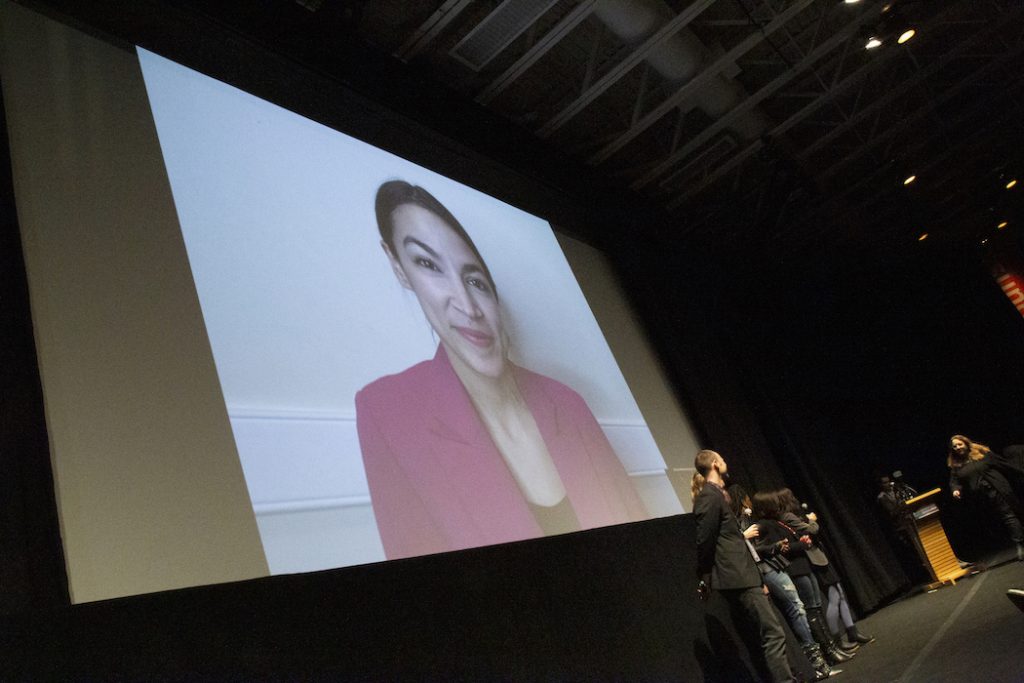
KNOCK DOWN THE HOUSE Q&A at Sundance 2019
HtN:…where the Q&A was full of great energy, with this giant Skype head of AOC above the whole proceedings. What are some of your favorite moments from the rollout? Because you’ve been at more than just Sundance. You were also at SXSW, for example. Do you have any standout moments from this pre-Netflix rollout?
RL: Gosh. I mean, every Q&A has been fantastic. All of the women featured have participated in one way or another. There was a moment in a screening we did in New York, at the Athena Film Festival, that Alexandria was able to come to, where she was asked what her advice was for young women. She said a lot of things, which she has also said in other places, but I remember at one point she said just as kind of a throwaway line, “Do your taking-up-space exercises,” which is the reference to the moment in the film where she’s preparing for the debate with Joseph Crowley and she’s kind of psyching herself up for it.
She puts her arms out and kind of makes awkward waving motions in the air, and her partner asks her, “What are you doing?” She says, “I’m taking up space.” I’ve never heard her refer to that before. I’m not sure if she would refer to it if we hadn’t filmed it that day. I don’t know whether or not this is something she does on a regular basis, but that was the only time I’ve ever seen her do it. But, in any case, I love the idea of taking-up-space exercises as documented in that moment which, in retrospect, is kind of a historic moment. I love the idea that that could be something that really resonates with young women and anybody who is an underdog anywhere as the film rolls out.
HtN: Well, she’s certainly quite a role model. I didn’t see her speak at SXSW, though I was there, but I spoke to the director of the documentary We Are The Radical Monarchs the day after that, and two of her subjects, both young women of color, were at the Q&A with AOC, and apparently it was a wonderful moment between them.
RL: Yes.
HtN: She is definitely leading the way for the next generation.
RL: Absolutely.
HtN: So, I have heard that, predictably, there has been some backlash from the quarters one might expect over Netflix’s decision to release your film on their platform. Has there been any discussions between you and them over how to respond, or to just ignore it, or any good talking points that you discussed?
RL: So, a lot of people out there who are commenting on this don’t understand the film industry at all and they maybe assume that Netflix commissioned this documentary, which is not the case. It was completely independently produced by a very small team, and we have very strict editorial control. We never shared any material with any of the candidates for their promotional materials. We have very strict journalistic standards of independence and fact checking.
What I’m really hoping happens when the film comes out is that people will watch it and I hope some of the people that are making these comments now, or assuming that there’s some kind of political agenda behind the Netflix acquisition, or behind the film as a whole, I hope they’ll watch it because it’s probably going to be more complex and nuanced than they might think. It’s, first off, a very dramatic set of human stories, but it’s also a very in-depth exploration of the political process. You know, about the way power works in this country and what it takes for grassroots movements to challenge established power.
There are a lot of themes in the film that really resonate across party lines. We’ve actually had really fantastic responses from conservatives and even Trump voters that have seen the film at festivals. It’s really resonated with them on a human level as well as the themes of outsiders challenging the establishment or getting money out of politics, or even increasing representation. All of these things get to the heart of what our democracy is and should be, and they’re non-partisan issues. We feel like there’s a lot to explore there in the film. The social media and 24-hour news cycle tend to reduce our political conversations to really simplified and polarized back-and-forths, but this is a long-form piece with a lot of layers to it. We hope that putting that out there into this conversation will generate some productive dialogue.
HtN: Hear, hear! Certainly, it’s hard to watch your film and not come away finding these four women incredibly inspiring, as well as cinematically engaging. Congratulations on the film. I hope as many people as possible watch it. I loved seeing it, and I hope everyone else does, too. Thank you.
RL: Thank you so much!
– Christopher Llewellyn Reed (@ChrisReedFilm)
Like what you see here on Hammer to Nail? Why not pay just $1.00 per month via Patreon to help keep us going?








